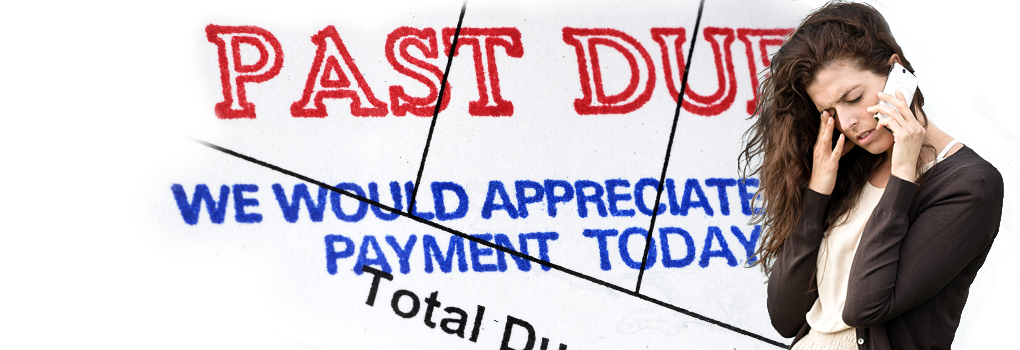Zombie Debt Slayers to the Rescue
Do you know what a “zombie debt” is? Have you ever heard of “debtor’s prison?” I sure hadn’t before I met up for lunch with Stephen Recordon and Clinton Rooney. These two intelligent and compassionate attorneys hardly looked like they were capable of slaying anything, but I was wrong…
Since January 2009 Recordon and Rooney have taken over 30 “zombie debt” cases to trail via LASSD’s Pro Bono Case Referral Program. These two solo practitioners operate as a team, tackling all aspects of their clients’ needs in these zombie debt cases. Rooney defends the collections case, usually defeating the lawsuit by proving the assignment of the original debt is invalid. Recordon takes the offense, filing the cross-complaint based on the plaintiff/debt buyer’s Fair Debt Collections Practices Act (“FDCPA”) violations. This approach results in the creditor having to pay statutory fees to the consumer.
They enjoy protecting consumers against abusive collection tactics, and are about to do so while making some money without charging the client. They see this as a win/win/win scenario because:
- The client walks away without having to pay the debt or their lawyers
- The client can collect statutory damages for the debt buyer’s abusive tactics
- The attorneys can collect fees, paid by the wrongdoer
What is zombie debt, anyway?
For those of you who are too young to remember Night of the Living Dead, dictionary.com defines a zombie as “the body of a dead person given the semblance of life, but mute and will-less, by a supernatural force, usually for some evil purpose.” In the context of “zombie debt,” the zombie can be seen as the old debt being resurrected for the evil purpose of making large sums of money for debt buyers who use harassing tactics against consumers.
Zombie debt (sometimes referred to as “scavenger debt”) arises in a situation where, for example, you have a credit card and fall behind on your payments.
The credit card company opts to write off the debt and give up on that money owed on the credit card. Then years go by. At this point, you, the consumer, think the debt is dead. But not so fast! There are companies ready to buy these zombie debts for pennies on the dollar. In fact, Recordon says, it is estimated that approximately $100 billion (yes, with a “B”) in debt was sold last year. After purchasing the debt, the debt buyer attempts to collect the old debt (yes, the one you thought was dead!). Now, keep in mind that these debt buyers aren’t attempting to collect this money to pay back the credit card company. They are simply trying to make money in what can be a very lucrative business.
Default judgments and illegal collection tactics:
Bad things happen when people aren’t paying attention!
Recordon says that collection cases in California have a 95-97% default rate. Debt buyers purchase old credit card debt accounts from original creditors such as Chase Bank or Capital One. If a debtor/defendant is improperly served (or not served at all), that debtor risks having a judgment entered against them. A consumer who gets defaulted may not even know about the default judgment against them. This type of judgment can negatively affect the debtor’s credit, which can also go unnoticed, if the consumer is not paying attention to what information is being reported to various credit bureaus.
Another big problem for consumers is abusive tactics used by debt buyers to collect. These tactics can be harassing and illegal under the FDCPA. They include:
- Verbal abuse
- Threats to sue over debts even though the statute of limitations has expired, or debt has already been paid or legally erased in bankruptcy court
- Illegally “re-aging” debts on credit reports, wherein collectors tell credit bureaus that an old debt is, in fact, a new one. The collectors then enjoy a seven year limit on reporting negative items and put more pressure on the consumer
- Promising to delete a negative mark from the consumer’s credit report in exchange for the payment token – a payment which can, unbeknownst to the consumer, revive the statute of limitations and lead to a lawsuit. Even worse, if that collector stops trying to collect on the unpaid debt, it can be resold to another company that might renew collection activity
You too can be a zombie slayer!
Many times these debts aren’t valid or the debt buyer cannot prove ownership. Additionally, many debt buyers will misrepresent the amount of the debt, will sue on debts that are barred because they are too old, or will call consumers to harass them until they pay to make the telephone calls stop. But all of this goes under the radar without people like Recordon and Rooney, who work together to defend debtor’s rights and sue for the FDCPA violations. Rooney explained that many of the debt buyers suing on these zombie debts are not happy about the cases Recordon and he take on. “The debt buyers call us cloggers, because we clog up their finely tuned system of making money by suing consumers for old, time-barred debts and winning by default.”
Recordon, a former personal injury and criminal defense attorney, expressed how much he loves his new role stating, “When I did personal injury, I got beat up by the adjusters. When I did criminal defense, I got beat up by prosecutors. Now, I get to get to do the beating up!”
Stephen Recordon represents consumers who have been sued by debt collectors or who have been harassed by debt collectors or law firms. He has over 30 years of litigation experience, after receiving his JD from California Western School of Law. He has served the community as a judge (Pro Tem), hearing small claims cases at the South County Courthouse. He practices with his wife, Kathy Recordon, a family law Attorney. Clinton Rooney specializes in tenant’s rights, consumer rights and bankruptcy. A former attorney for the Legal Aid Society of San Diego’s Consumer Law Team, he now does pro bono cases.




